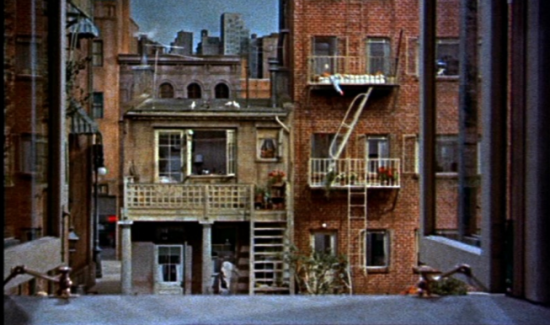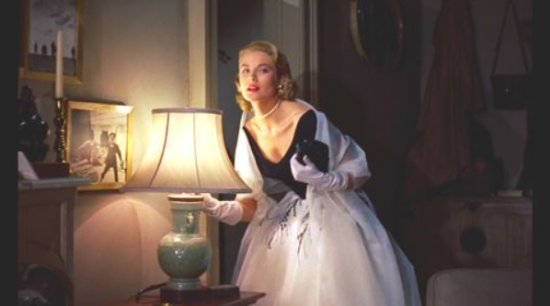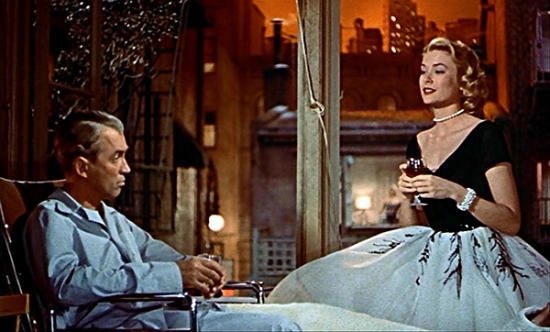Groupthink doesn't live here, critical thought does.
Welcome!
This ad-free website is dedicated to Agnès Varda and to Luis Buñuel.
Get cool rewards when you click on the button to pledge your support through .
Thanks a lot acorns!
Your kind generosity keeps the reviews coming!
 Alfred Hitchcock’s take on Cornell Woolrich’s novel (screenplay by John Michael Hayes) reeks of McCarthy era anti-socialist propaganda.
Alfred Hitchcock’s take on Cornell Woolrich’s novel (screenplay by John Michael Hayes) reeks of McCarthy era anti-socialist propaganda.
Hitchcock made a thematically rich story about authoritarian surveillance that reneges on itself in the film's last act. What starts out as a cautionary tale about the dangers of voyeurism and public scrutiny, twists to confirm to the grassing behavior of a white supremacist. Reporting on your neighbors much?
It's as though the film's producers ran in at the last minute with a different ending for Hitchcock to film, and he'd already cashed his pay check so he agreed to shoot an ending in direct conflict with the story at hand.
James Stewart’s L.B. “Jeff” Jefferies comes across as either impotent, gay, or too misogynist to carry on a romantic relationship with Grace Kelly’s impossibly beautiful Lisa Carol Fremont. The scene where Jeff repeatedly tells Lisa to “shut up,” is disgusting for Jeff’s abusiveness. Memo to Lisa, you're in an abusive relationship, get out now before it's too late.
Jeff is a war photographer (turned cult leader) laid up with a broken leg. Jeff is more interested proving his masculinity by running around the world in fatigues and combat boots, than he is in making love to Grace Kelly.
Fool.
The film’s first two acts appear to criticize Jeff’s anti-hero as a busy-body obsessed with turning in his neighbors for any perceived indiscretions. This is a man in need of a good therapist, or at least a solid hobby or two. Observing Jeff indoctrinate those him around into his crazed imagination is more of a disappointment than a revelation. Here is a rightwing reactionary patriarchal character with no redeeming value.
The telescopic lens for Jeff’s camera is his phallic substitute that he uses to invade the lives of people living across the courtyard from his New York City bedroom. The thrust of the narrative pivots on Jeff’s ability to infect the minds of those around him with a dangerous sense of suspicion and fear, relating to his neighbor Lars Thorwald (played by Raymond Burr) whom, Jeff believes has killed his wife and disposed the woman’s body.
“Rear Window” may hold a special place in the hearts of Alfred Hitchcock’s legions of fans, but the film breaks with a bizarre thematic reversal that emphasizes a web of American hypocrisy at its core. It is a film with no empathetic character. Jeff Jefferies is a Joseph McCarthy wanna-be. Grace Kelly is a woman overcompensating for her low self-esteem by hiding behind expensive fashion and beauty rituals.
Even Jeff’s insurance company nurse Stella (Thelma Ritter) is revealed to be a woman capable of far less independent thought than she seems to possess. As a result of this film’s bait-and-switch meaning, it remains one of Alfred Hitchcock’s more minor efforts.











